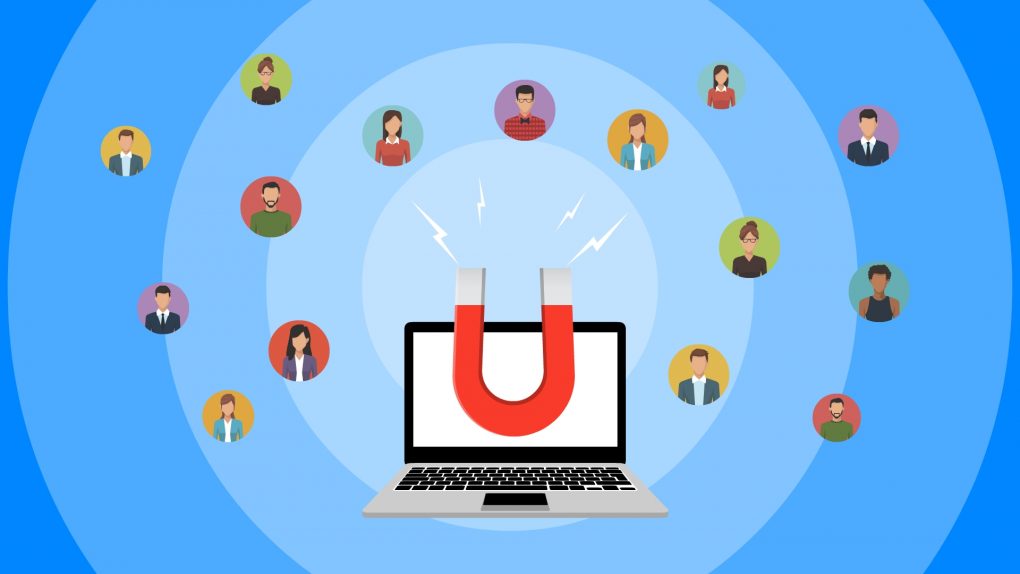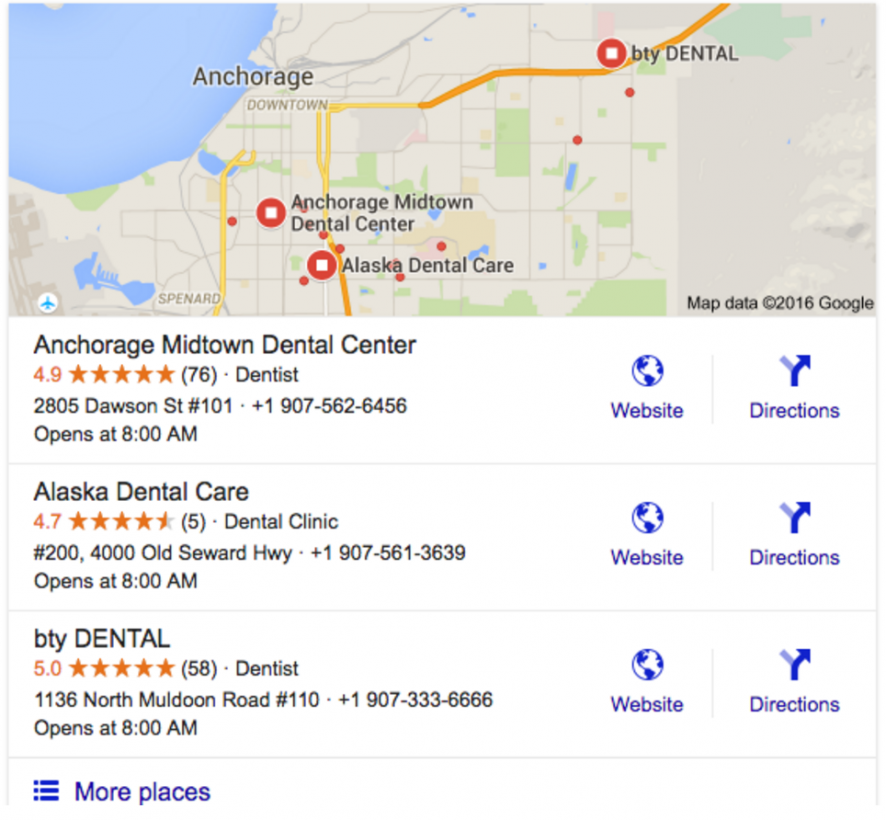The Lead Gen Business Model Explained
The lead generation business is booming online right now.
At its core, all a lead gen business does is generate leads for a specific business or company. These businesses may be anything from an international college or vocational school to your local chiropractor or dentist.
Your job in this business is to find your client business qualified leads that they can turn into customers.
How Does It Earn Money?
Lead gen sites all vary, but generally you earn money for every lead you generate for one of your client companies. It is important to note here that no sale is being made in this process. The lead has not bought anything; rather, they have merely provided some information, or they have picked up the phone and called your client business.
Some companies will only qualify someone as a lead if they fill out two forms. Others will only qualify a lead if that lead picked up the phone and had at least a 30-second conversation.
While every lead gen program differs wildly, the premise remains the same. For every qualified lead you send to the business, they will give you a finder’s fee for that lead generation.
The Pros of the Lead Gen Business Model
The lead gen business model can be lucrative, but it can also be very passive if you are using organic traffic sources, especially similar to those found with AdSense or Amazon affiliate sites.
One of the intriguing things about the lead gen business model is that, unlike other affiliate sites, the lead gen site does not need to follow the affiliate model if you don’t want it to. You could simply set up a deal with local business owners in your area or even outside of your area in other cities.
Many of these business owners will pay you either a monthly retainer fee to keep this lead gen website referring customers to them, or on a purely pay-per-lead basis.
If you operate in a niche where the lead rate is higher than the potential commission on a sale, there is certainly room to earn more money through lead generation vs affiliate marketing. Some of these niches include insurance, legal services, medical services, and finance.
If you do want to go the affiliate route, there are a slew of affiliate programs you can find that are all about pay per lead offers, such as:
- Quinstreet
- Campus Explorer
- Ring Partner
Quinstreet and Campus Explorer both qualify their leads by having the leads fill out forms, but Ring Partner is a bit different. Instead of the normal pay-per-lead model, Ring Partner does pay-per-call.
All three of them have dozens of different offers you can use if you decide you would rather go the affiliate route over the direct route of finding business owners who want to pay you per lead.
If you ever plan on selling your lead gen model website, the affiliate model is typically going to be an easier migration process, though, there are obvious benefits to going it on your own, as your payouts will be higher. The downside to this is that your payment system will potentially be less streamlined.
Two Other Pros of the Lead Gen Model
- Focus on geolocal keywords. These keywords are often easier to rank for than other keywords because there is less competition for the keywords themselves. (E.g. “carpet cleaning in Phoenix + Arizona,” or whatever city and state you’re targeting.)
- Can use spun content. As I write, Google still allows duplicate content on local pages and will not penalize the websites using it like they would with a website that is not targeting a local niche. This is currently a loophole, but it is a loophole that has been around for a few years now. It is safe if you “spin” the content, which is just where you put an article into spin syntax. This allows you to turn one article into potentially thousands of articles of unique content. Here is a great article describing spin syntax in more depth.
As you can tell, the lead gen model is pretty fantastic.
If you do decide to avoid affiliate networks and go direct, the lead gen model holds some more advantages over a client-based business.
In a client-based business, a client might not pay you even after all of your search engine optimization (SEO) work has been applied to their website. Compare this scenario with the same one in a lead gen business: if the client does not pay you for the leads or your monthly retainer fee, you can just switch the website over to a new tenant (usually their competition) and give them the leads instead.
Despite this being a fantastic business model, there are also some drawbacks.
The Cons of the Lead Gen Business Model
While targeted traffic is important in any business model, it is especially important for a lead gen business model. If your lead gen offer is for a carpet cleaning service in St. Louis, Missouri, but you are offering that to traffic that is looking for carpet cleaning in Anchorage, Alaska, your offer won’t convert.
This is why it is very important to target local keywords, even hyperlocal keywords where you break up a city into smaller suburbs. Your traffic will be lower, but the conversions will be much higher.
If you decide to ditch the affiliate route and go direct, you also run the real risk of clients failing to pay. This is not merely annoying. It could also be catastrophic for your website’s earnings if you can’t find anyone else to start paying for the leads in this very specific area or very specific offering.
Moreover, unlike affiliates like AdSense, which have basically unlimited offers, and Amazon, with millions of offers, there are just not that many lead gen offers out there.
This gives you fewer options, especially when targeting hyperlocal traffic with your offers.
Furthermore, if you choose to go direct and sell this site at a later point, the migration process to the new buyer could be a big hassle. Some of your clients might not like the idea of paying the new owner and might just quit the service altogether underneath new leadership.
This can make selling direct lead gen websites a bit messier than other kinds of business models.
However, it is still doable.
What Buyers Need to Know
As mentioned above, a buyer needs to be aware that the traffic coming to the site needs to be extremely targeted in order to convert on these offers. If the offer doesn’t exist in the area that the traffic is coming from, that traffic is worthless.
For this reason, many of these sites operate in a local to hyperlocal context. This means you have some extra SEO benefits that normally do not exist for other business models.
For instance, you can take advantage of getting listed in Google Maps’ 3-Pack. The Google Map’s 3-Pack appears above the main organic search results for local keywords. Often people will click on these listings before any other listings to either get directions to the business or to give the business a call to create an appointment.
If you’re unfamiliar with what the 3-Pack looks like, here is a quick example for dentists in Anchorage, Alaska:
There are several ways to get a lead gen website into the 3-Pack. I would recommend Mark Luckenbaugh’s guide on the subject over at Local Client Takeover, which you can find here.
One of the nice benefits of targeting local searches with lead gen offers is that the competition is going to be less fierce than if you were building a normal affiliate website.
It also makes every town, city, and locale a unique niche for your specific offer, which is pretty cool.
If you’re looking to purchase a lead gen business, we’re happy to offer you our guidance.
What Sellers Need to Know
One advantage sellers have with selling lead gen websites is that they are unique websites. They are not typically monetized via Google AdSense, Amazon, or mainstream affiliate networks.
For someone looking to diversify their income, lead gen websites often make a lot of sense. Their uniqueness can make lead gen websites very alluring to prospective buyers.
One thing to note here is that — as with any other business you wish to sell — you will have to give the buyer access to the proof of earnings.
If you decided to go direct and have clients renting your websites or paying you per lead, this might be an extra hassle you will have to deal with.
The buyer needs to know that the earnings are real, which means they or our vetting agents will have to log in to whatever payment processor you are using to verify the earnings.
This also comes back to the migration portion of the business. Have you laid out how you will transfer the payments over to the new buyer if your website is using direct clients instead of affiliate programs?
If not, you should come up with a good strategy whereby you can transfer the business over as smoothly as possible. We can help you with this strategy, as well as help you create a profitable exit plan for free, just schedule a call here.
What Buyer Persona Best Fits a Lead Gen Business Model?
A lead gen business can fit the style of most buyer personas, but in each case it does so for very different reasons.
Strategic Sally
This kind of buyer is more interested in how lead gen will grow her overall business. She might be the owner of an ad agency, so buying out lead gen websites or even other service companies makes sense for her to grow her own brand. It is part of her overall strategy to grow her main business even bigger.
Lifestyle Larry / Portfolio Paul
These two would be most interested in owning these kinds of websites if it were done purely through affiliate sources rather than going directly to clients. Lifestyle Larry wouldn’t want to deal with the potential client hassles and possible cancellations. He can just as easily put up an appropriate affiliate link, earn money, and never have to handle any of that.
Likewise, Portfolio Paul probably does not want to handle client interactions with a direct lead gen website. Paul is already managing several different websites, and the last thing he wants to deal with is client hassles.
It is likely both of these kinds of buyers would be interested in a lead gen site, but only if it is monetized via affiliate lead gen offers.
DIY Dave
DIY Dave would likely be very intrigued by a lead gen website. There are a lot of opportunities for them to grow, as most lead gen websites only have a few geographical locations earning revenue.
The DIY Dave might be very open to the idea of adding dozens, hundreds, or maybe even thousands of new locations that are optimized for the offer. They would likely also be open to a lead gen site that is earning money directly from clients.
Lead Generation Growth Strategies
When it comes to scaling lead gen websites, there are several different strategies you can use to grow them.
Local Paid Traffic
Similar to the uniqueness of local SEO, you have a unique opportunity here to run local paid traffic. It will often have less competition, especially in less competitive cities and smaller towns.
This can be a huge opportunity for the right buyer who is looking to master the paid traffic learning curve.
Adding New Content in New Local Areas
Since most lead gen websites are not covering every single area that the offer is available in, someone wanting to grow their lead gen site significantly just needs to find all of the locations where their specific offers are available and build those pages.
Depending on the affiliate offers or the direct partnerships, there could be literally thousands of new locations in which lead gen website owners can grow.
Some lead gen websites become so big that they convert over to becoming a directory in and of themselves. This is especially true for those who are monetizing the lead gen website with direct clients versus affiliate offers.
Expanding into Related Offers
It is unlikely a website has expanded into every local area with their offer. Even if they have, they could want to add a second offer. In any case, this is a great growth strategy for most lead gen websites.
If you can find an offer that is related to your offer or even adds value to the original offer, then you might be able to create new content around this offer in all of the local areas your website is already featuring.
Your related offer does not exactly need to be location-based, either.
For example, if you have a lead gen website that generates leads for colleges, you might also want to offer an affiliate link to online courses or other educational opportunities.
Resources to Learn More About Lead Gen
While there are many resources when it comes to learning about how to run lead generation websites, there is one that stands head and shoulders above the other trainers out there.
That resource is Local Client Takeover. While they mainly talk about building lead gen websites directly for clients who then rent those sites, their process works whether you decide to do direct partnerships with local businesses or decide to go the affiliate route.
While affiliate marketing is different than lead generation, there is still a lot of overlap between the two models. Some of the better lead gen programs that will pay you out also operate very similar to an affiliate offer or network. If you don’t know much about affiliate marketing, or the differences between affiliate marketing vs lead generation, you can learn more by watching this video we did on the topic.
Want to buy a lead gen website? Check out our marketplace for buy and selling sites.
Or do you have a lead gen website you are itching to sell? You can sell your website with us.







Discussion
Hi,
I followed the trailed to Local Client Takeover, which when you click ‘buy the course’ takes you to JV Zoo, which is a whole other internet marketing thing, with no continuation or link back to LCT.
Who is doing what here? I am confused by what products are being represented and by whom. I’m looking for a solid lead gen educational product.
Cheers
Jonno
Hey Jonno,
If you’re looking for a solid lead gen education product, I would recommend Local Client Takeover or The Lab. Either will suit you fine.
You can reach out to Mark Luckenbaugh in his Local Client Takeover group on facebook